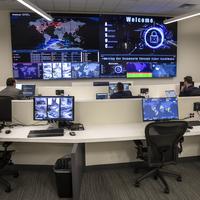When a tragedy strikes, manmade or an act of God, the need for blood skyrockets.
With the nation facing a critical shortage, blood centers across the country decided to band together to help when the need for blood arises.
The Blood Emergency Readiness Corps or BERC program was started in September. Seven blood centers, including the South Texas Blood and Tissue Center, came together to create something new— a blood sharing partnership.
Have you heard of BERC? Not yet? Well tonight at 10 on #TheNightbeat you will. The Blood Emergency Readiness Corps was started by 7 blood banks in 5 states back in September. Now they’ve expanded to 22 centers across 32 states. It’s a first of its kind blood sharing partnership.
— Leigh Waldman (@LeighWaldman) December 14, 2021
“Blood centers across the nation to respond in the case that there is a mass casualty, a major disaster where blood in the local area cannot support the need that is demanded at that time,” Adrienne Mendoza, the VP of blood operations at the South Texas Blood and Tissue Center said.
Mendoza says in just a short time, their program is expanding.
“The first seven centers were across five states. But now in November, we have 22 centers across 32 states already,” Mendoza said. Each blood center a part of BERC is asked to set aside five units.
She explained when a tragedy strikes there are “almost 100 units in total are available to send to a disaster should one occur now.”
Here’s how it works— each blood center is on a rotating schedule where they commit to collecting extra units of blood for a few weeks at a time.
BERC has been activated three times already. Most recently, in Kentucky when a powerful tornado ripped through the state leaving more than 70 people dead.
Before that, BERC was activated during the Michigan school shooting where four students died and several others were wounded. In that case, some of the blood came from the neighboring blood center in Corpus Christi.
“We got an email that morning stating, you know, BERC has been activated and we’re like, ‘oh my gosh.’ And then of course, we heard of the Michigan shootings. So it was just literally from one day to the next,” Ashley Ramirez, public relations for Coastal Bend Blood Center said.
The hope is to have blood centers in all 50 states and US territories join BERC.
“We don’t know how big the need may be, but the more prepared we are, the easier that is,” Mendoza said.
BERC doesn’t impact the local blood supply, it’s blood that’s set aside specifically for the program.
The South Texas Blood and Tissue Center is looking for organizations or sponsors to host BERC blood drives to keep this program around and successful.

